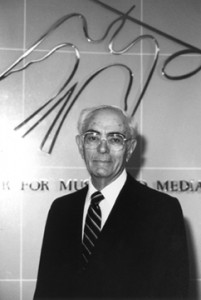A Daze Work
In the early 1950’s I was hired by the Navy Department, in particular, by the Inspector of Naval Materials (INSMAT). I had to go to electronic companies in the Long Island City area of New York and inspect electronic items and assemblies to ensure that they had no defects (or an acceptable few cosmetic defects) before they could be shipped to the Navy. This job gave me a deeper insight into the workings of small companies than I had ever had before.
The companies included: Mark Simpson Electronics Co. (MASCO) a maker of Audio Amplifiers, the Fisher Radio Co. making Fire Control servo amps for Naval guns, and a company making power resistors and another company making high current fuses.
There were two ways to inspect a product before I approved it for shipment to the Navy. In the first way I inspected fully each item that they produced. At the Mark Simpson Company every record player and amplifier passed across my worktable where I inspected it and tested it in every detail before I put my USN stamp on it.
The other method was by sampling. At Fisher they presented me with, say, a hundred fire control amplifiers on a cart. Then I would select a dozen or so, some out of the middle, some the top and some deep down in the bottom. These I would inspect and test thoroughly. No electrical defects were allowed in the sample and cosmetic defects were limited to a small few. Any units rejected resulted in the entire lot being rejected.
One would think that the 100% inspection would produce a more perfect product than just inspecting a few out of a much larger lot, but in fact the reverse was the case.
The Mark Simpson company management gamed the system very well. They set me up at the end of the assembly line with all the equipment I needed to inspect a unit. Then, over a short time, they removed all their own inspectors from the line. Now it also turned out that many of the defects were missing solder joints. I quickly learned that I could grab the soldering iron from the cute little Puerto Rican girl next to me and — ZAP — all was right with the world. It was not until years later that I realized that they had hired their navy inspector (me) at no cost to find all their mistakes and also to fix most of them.
 Fisher Radio was the other side of the coin. First off — nobody spoke Spanish. Everyone, from Avery Fisher on down, spoke German or Yiddish or some mix of both. All through World War II they had a personal interest in making sure that our naval guns hit their targets. So, these fire control amps were always 100% perfect. I never found a single defect in any Fisher product I ever inspected.
Fisher Radio was the other side of the coin. First off — nobody spoke Spanish. Everyone, from Avery Fisher on down, spoke German or Yiddish or some mix of both. All through World War II they had a personal interest in making sure that our naval guns hit their targets. So, these fire control amps were always 100% perfect. I never found a single defect in any Fisher product I ever inspected.
Years later, when I had a nice record collection, my hi-fi radio and audio amps were always made by Fisher. It still is — a Fisher Model 800-B.
Did you enjoy this post? Why not leave a comment below and continue the conversation, or subscribe to my feed and get articles like this delivered automatically to your feed reader.



Comments
No comments yet.
Sorry, the comment form is closed at this time.